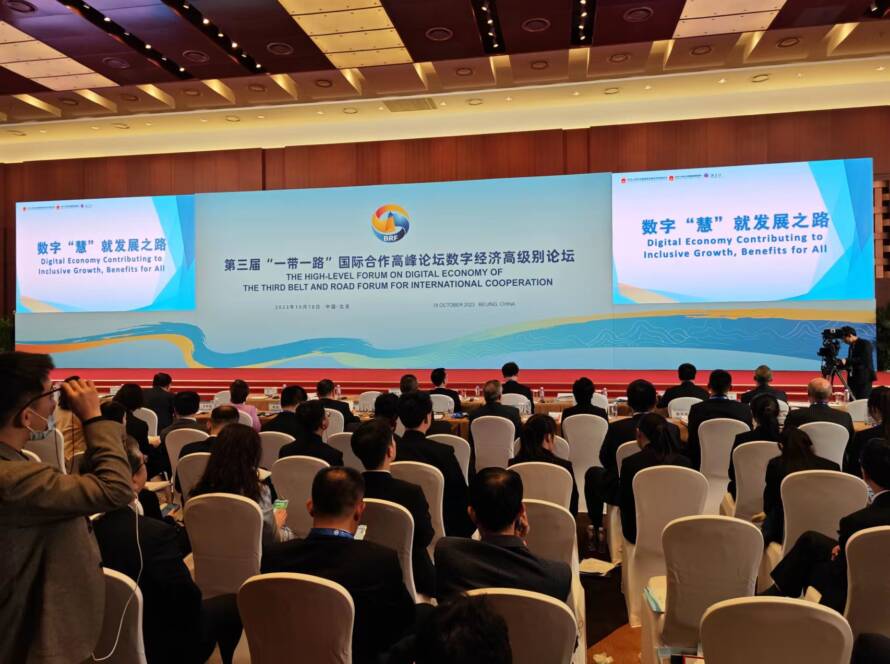By Minoli Gunarathna
Climate change refers to long-term, major changes in the global climate. Given the increasingly dire global climate situation, international cooperation must be prioritised. Climate diplomacy is a strategy approach that highlights the need of incorporating climate goals and addressing climate-related concerns at the highest level of diplomatic interaction and across multiple policy domains. Concerned about its role in climate change diplomacy, Sri Lanka has embarked on a hopeful effort to solve environmental problems and contribute meaningfully to a sustainable future.
Dr Anil Jayasinghe, Secretary of the Ministry of Environment, agrees that “climate change development policies and programmes should understand, address, and acknowledge the complexities of different mobilities in the context of climate change.” It necessitates a “whole-of-government, whole-of-society” strategy. It indicates that the highest levels of Sri Lanka’s bureaucratic system recognise that climate diplomacy and intervention require a diverse strategy.
Sri Lanka has shown proactive participation in climate change diplomacy by actively participating in major international climate conferences and advocating for vulnerable nations’ interests. The country has made a clear commitment to reducing greenhouse gas emissions and transitioning to a lower-carbon economy. Sri Lanka places a high priority on adaptation and resilience-building strategies in order to successfully handle the challenges provided by changing climatic conditions and mitigate the possible dangers connected with extreme weather events.
The country is also increasing its use of renewable energy sources, in accordance with worldwide efforts to combat climate change and enhance energy security and sustainability goals.
Sri Lanka is actively seeking overseas cooperation to strengthen its capacity for climate action. Climate change considerations have been successfully incorporated into national policy, as seen by the incorporation of climate resilience into development plans. Natural resource conservation projects play a critical role in Sri Lanka’s climate diplomacy efforts.
Following international efforts to mitigate the effects of climate change, Sri Lanka has promised to attain carbon neutrality within a specified time frame. The government has set specific goals and timelines for reducing greenhouse gas emissions and implementing sustainable practices. The primary focus is on renewable energy sources like solar, wind, and hydroelectric electricity.
Sri Lanka is currently making significant efforts to promote and commit funding to renewable energy programmes in order to diversify its energy portfolio. Concurrently, the country is reducing its reliance on non-renewable energy sources like coal, oil, and natural gas. The government is implementing carbon neutrality goals into national policies and development plans, dedicating resources to sustainable technology, and increasing public knowledge and engagement. A mechanism for regular monitoring and reporting of operations has been put in place to ensure accountability and track progress.
Sri Lanka’s proactive approach to combating climate change and understanding the connection between environmental preservation, economic prosperity, and citizen welfare is exemplified by the aforementioned promise.
In August 2023, Sri Lankan President Ranil Wickremesinghe visited Singapore and signed a Memorandum of Understanding (MoU) on carbon credits partnership under Article 6 of the Paris Agreement. The Memorandum of Understanding aims to exchange best practices on carbon credits, develop mutually beneficial projects, and investigate possible collaboration in carbon markets with third nations.
The MoU establishes a bilateral mechanism for the international transfer of adjusted carbon credits, allowing Singapore-based carbon-tax-paying enterprises to offset up to 5% of their taxable emissions.
Climate diplomacy acknowledges the role of foreign policy in international climate policy, with Singapore’s long-term Low Emissions Development Strategy aiming for net-zero emissions by 2050. The President is also spearheading attempts to build the Climate Change University in Sri Lanka, with universities such as MIT and Harvard expressing interest in participating.
Sri Lanka and Japan signed a Cooperation Memorandum pertaining to Japan’s Joint Crediting Mechanism in October 2022, with the goal of establishing a relationship focused on attaining low-carbon growth. Sri Lanka came into a formal agreement with the Global Green Growth Institute (GGGI) in the month of February 2023.
The GGGI recognises the need of overcoming present energy and economic constraints, such as debt, and has offered its assistance to the Sri Lankan government in accelerating green growth, achieving net zero emissions, and improving the country’s climate resilience.
Bilateral partnership promotes diplomatic relations between Sri Lanka and its partner countries. Climate change pledges contribute to positive diplomatic connections, potentially opening the door to larger cooperation in other areas. As a result, Sri Lanka’s negotiating position in international climate negotiations has improved. Collective action with other countries strengthens a country’s voice and influence, boosting the possibility of good outcomes in global climate agreements.
Sri Lankan President Ranil Wickremesinghe has reaffirmed his support for the UN Secretary General’s accelerated climate agenda, emphasising the significance of concrete climate initiatives. He emphasised the serious economic repercussions of climate change, with scientists forecasting a 1.5% drop in Sri Lanka’s GDP by 2050.
Sri Lanka has taken a two-pronged approach to climate ambition, releasing the Climate Prosperity Plan, a green growth strategy focused on renewable energy generation, and supporting the establishment of a climate justice forum to stimulate international collaboration.
In addition, the President proposed two worldwide initiatives: the establishment of an international climate change university and the Tropical Belt Climate Ambition Project, which would target vulnerable populations in the bio-diverse tropical belt region. These initiatives, together with projected debt relief for low-income nations, are expected to make a significant contribution to the Secretary General’s expedited climate agenda.
Sri Lanka’s participation in climate diplomacy is significant, as evidenced by international events, bilateral collaborations, agreements, and global efforts. The Sri Lankan Ambassador was invited to speak at Ankara University on International Biodiversity Day, demonstrating international cooperation and diplomatic participation in biodiversity.
The Ambassador and the Rector of Ankara University discussed the development of bilateral relations between Sri Lanka and Türkiye, with a focus on biodiversity and agriculture cooperation. The Ambassador complimented Türkiye on hosting the 16th Conference of the Parties to the United Nations Convention on Biological Diversity in 2024, reflecting diplomatic interactions on environmental initiatives and international conferences.
Sri Lankan officials recently visited the United Kingdom to boost joint efforts to prevent climate change, with a special emphasis on programmes linked with biodiversity goals and the Glasgow Pact. This emphasises the critical need for global action to address the effects of climate change. Mitigation measures include lowering greenhouse gas emissions, shifting to more sustainable practises, and building resilience to the effects of climate change.
The tour also highlights the significance of biodiversity conservation, since ecosystems play an important role in carbon sequestration and environmental balance. Projects targeted at safeguarding and restoring biodiversity, sustainable land-use practises, and the preservation of vital ecosystems are likely to be part of collaborative initiatives.
The Glasgow Pact, a global commitment to accelerate climate action, is highlighted, implying that the UK and Sri Lanka are aligning their efforts with the aspirations and commitments of the international community. The United Kingdom’s support for Sri Lanka’s environmental projects is part of a diplomatic engagement focused at addressing common environmental concerns.
Both the United Kingdom and Sri Lanka are committed to reaching net-zero carbon emissions, with the United Kingdom becoming the first G7 country to pass legislation requiring net-zero emissions. Diplomatic cooperation for climate goals is visible, with conversations on policy coordination, cooperative projects, and the exchange of best practises to improve both nations’ contributions to global climate goals. Building on each other’s environmental track records implies reciprocal recognition of each country’s efforts, which contributes to a more strong and effective global response to climate change.
Despite contributing less than 1% of global greenhouse gas emissions, Sri Lanka is vulnerable to climate change. In 2017, major climate-related calamities caused food and water shortages as well as fatalities. Sri Lanka must use climate money from wealthier countries, climate-smart investment, and geopolitical linkages to solve climate change.
The Global Climate Fund has granted grants totalling USD 38 million and USD 259 million for the financing of 47 climate change initiatives in Sri Lanka. The Commonwealth Climate Finance Access Hub prioritises assistance to Commonwealth small and emerging governments. Sri Lanka should keep an eye on climate funding in order to maximise and tap into all available sources. With good climate diplomacy, Sri Lanka stands a better chance of securing a fair share of available climate funds.
Finally, Sri Lanka’s dedication to climate change diplomacy demonstrates a proactive and comprehensive approach to resolving the complex problems faced by the global climate catastrophe. Not only has the country recognised the importance of climate action, but it has also actively participated in international forums to advocate for its interests and seek collaborative solutions.
In essence, Sri Lanka’s climate diplomacy initiatives have to do not only with environmental issues, but also with recognising the interdependence of climate action and economic success and social wellbeing. Sri Lanka exhibits its commitment to being a proactive player in the global fight against climate change by actively participating in global efforts, developing strategic relationships, and presenting creative solutions.
The country’s efforts are in line with international aims, add to the larger conversation on climate justice, and position Sri Lanka as a responsible and forward-thinking stakeholder in the global climate diplomacy scene.
Minoli Gunarathna is a graduate from the Faculty of Law of the University of Colombo and a final year student at the Sri Lanka Law College.
Factum is an Asia Pacific-focused think tank on International Relations, Tech Cooperation, and Strategic Communications accessible via www.factum.lk.
The views expressed here are the author’s own and do not necessarily reflect the organization’s.


